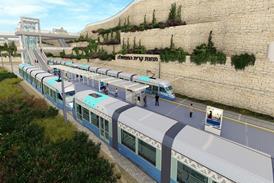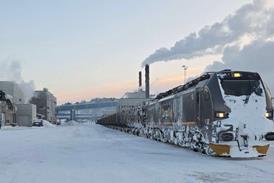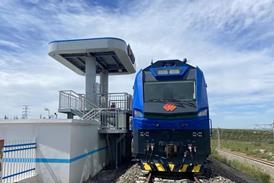EUROPEAN Commission Vice-President Jacques Barrot emphasised the need for modal shift if the transport sector is to play its part in tackling climate change, when he addressed a Unife seminar on sustainable transport in Brussels on January 22.
Barrot confirmed that the Commission will be bringing forward proposals by June to revise the Eurovignette Directive, which allows member states to levy charges on lorries using designated trans-European roads but does not currently require them to do so.
Unife Chairman André Navarri said the revision offered 'a unique opportunity' for the EU to strengthen its commitment to sustainable transport. 'Today, more than ever, we need a framework for the internalisation of external costs, reflecting the “polluter pays” principle. Costs such as congestion, accidents, noise, global warming and air pollution, are not incorporated into the price for mobility.'
Politicans are inevitably concerned that rebalancing transport costs could have a negative impact on their respective countries and regions in terms of global competitiveness. But Navarri pointed out that 'the Swiss distance-based toll has the highest per-km charge in Europe, which covers all roads in the country. Yet this has not prevented Switzerland from becoming the most competitive economy in the world in 2006-07. At a time when issues such as transport growth, capacity and environmental degradation are on the table, rail is the only credible mode which can sufficiently, effectively and sustainably deliver 21st century mobility.'
But the rail sector cannot simply wait for others to provide the mythical 'level playing field'. Europe's railways still have much to do to put their own house in order, improving efficiency, reliability and competitiveness, as well as looking at their own environmental impact as we reported last month (RG 1.08 p25).
















